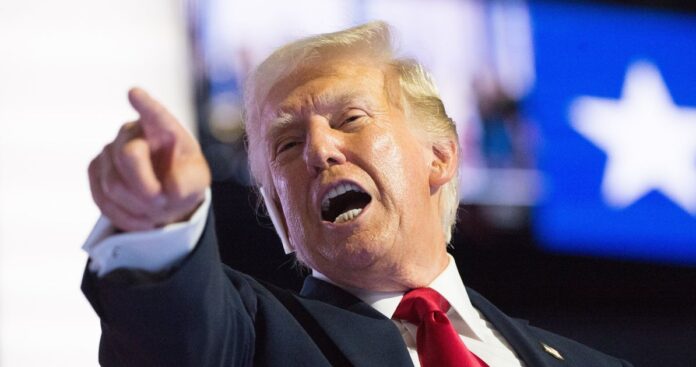Key Falsehoods or Claims:
The main claim in the article “Donald Trump Is Building a New Army of Foot Soldiers” by The New Republic is that Donald Trump is actively recruiting and organizing a new army of foot soldiers through his political action committee, Save America. The article argues that this army consists of loyalists who are dedicated to spreading lies and conspiracy theories in support of Trump and his political agenda.
Source Bias:
The New Republic is a left-leaning news outlet known for its progressive perspective on political issues. It is important to consider the potential bias of the source when evaluating the claims made in the article.
Analysis of Falsehoods and Impact on Public Opinion:
The article highlights the potential impact of Trump’s army of foot soldiers on public opinion and democracy. By spreading lies and conspiracy theories, these loyalists may contribute to further polarization and division within the American public. The article does not provide specific polling data, but it suggests that the dissemination of falsehoods can erode trust in democratic institutions and sow confusion among voters.
Threat to Democracy:
The article posits that the recruitment and organization of a new army of foot soldiers by Trump poses a threat to democracy by perpetuating misinformation and undermining the integrity of the electoral process. This could potentially lead to a more fragmented and contentious political landscape, making it difficult for citizens to make informed decisions based on accurate information.
Hypothetical Public Reactions or Political Outcomes:
Hypothetically, the spread of lies and conspiracy theories by Trump’s foot soldiers could lead to increased polarization and mistrust in the political system. This may result in a more polarized electorate and could potentially impact voter behavior by influencing perceptions of reality and shaping political beliefs.
Further Reading Recommendations:
For further reading on the topic of media influence and misinformation, reputable sources such as the Pew Research Center, RAND Corporation, and Columbia Journalism Review offer valuable insights into the impact of lies and conspiracy theories on public opinion and democracy. Additionally, scholarly articles and studies on misinformation and political communication can provide a deeper understanding of the dynamics at play.
Source link
Redirect URL
